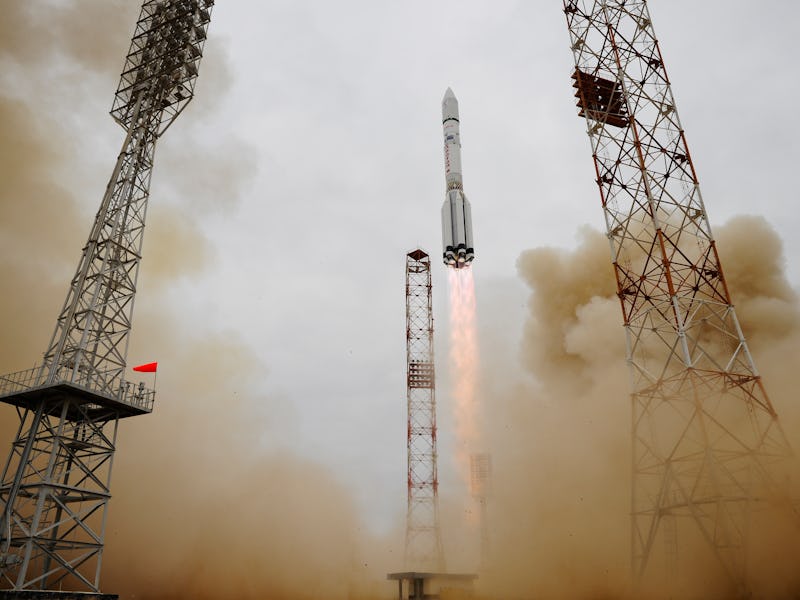Despite their less-than-stellar track record when it comes to landing on Mars, Europe is not giving up on their dream of reaching the red planet and successfully touching down on its surface. On Friday, the European Space Agency (ESA) announced it will proceed with the next phase of its ExoMars mission. ESA member states approved $480 million in funding that will enable the space agency to send a rover to Mars that will search for signs of life on the red planet.
The renewed funding will ensure that ExoMars — which is a joint project between ESA and the Russian Space Agency, Roscosmos — will ensure the mission will proceed on schedule. The rover is expected to launch in 2020, following a delay that pushed it back from a previous 2018 launch.
Artist conception of the ExoMars rover.
The first iteration of the ExoMars mission rocketed the Trace Gas Orbiter (TGO) and Schiaparelli test lander to the red planet earlier this year. TGO successfully inserted itself into orbit around Mars and is currently scanning the atmosphere in search of any trace gasses that may point to life — such as methane.
Unfortunately, the Schiaparelli lander crash landed after a software glitch tricked the probe into thinking it was already on the surface. As a result, the spacecraft detached from its parachutes more than tw miles above the surface. However, don’t worry. The lander is not a total loss. Engineers designed this mission as a proof-of-concept, meaning as long as they could gather intel on why the probe crashed, and how to correct any anomalies, it would still be deemed a success.
On Tuesday, ESA released the first bits of data from the TGO portion of the mission, which included some pretty sweet views of the red planet. The orbiter’s onboard camera takes high-definition images of the planet’s surface as the probe orbits. Scientists hope to produce 3D maps of the Martian surface from these images.
In total, $11 billion was approved during a two-day meeting in Lucerne, Switzerland. In addition to ExoMars, the new budget will help fund numerous other projects, including maintaining a European presence on board the International Space Station until 2024.
